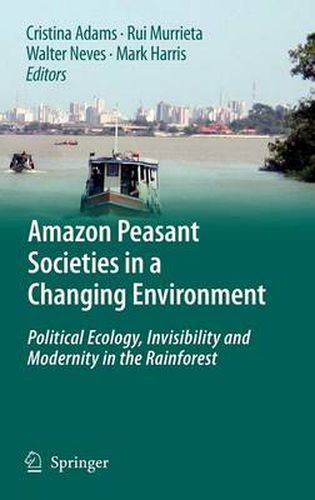Readings Newsletter
Become a Readings Member to make your shopping experience even easier.
Sign in or sign up for free!
You’re not far away from qualifying for FREE standard shipping within Australia
You’ve qualified for FREE standard shipping within Australia
The cart is loading…






Amazonia is never quite what it seems. Despite regular attention in the media and numerous academic studies the Brazilian Amazon is rarely appreciated as a historical place home to a range of different societies. Often left invisible are the families who are making a living from the rivers and forests of the region. Broadly characterizing these people as peasants Amazon Peasant Societies in a Changing Environment seeks to bring together research by anthropologists, historians, political ecologists and biologists.
A new paradigm emerges which helps understand the way in which Amazonian modernity has developed. This book addresses a comprehensive range of questions from the politics of conservation and sustainable development to the organization of women’s work and the diet and health of Amazonian people. Apart from offering an analysis of a neglected aspect of Amazonia this collection represents a unique interdisciplinary exercise on the nature of one of the most beguiling regions of the world.
$9.00 standard shipping within Australia
FREE standard shipping within Australia for orders over $100.00
Express & International shipping calculated at checkout
Amazonia is never quite what it seems. Despite regular attention in the media and numerous academic studies the Brazilian Amazon is rarely appreciated as a historical place home to a range of different societies. Often left invisible are the families who are making a living from the rivers and forests of the region. Broadly characterizing these people as peasants Amazon Peasant Societies in a Changing Environment seeks to bring together research by anthropologists, historians, political ecologists and biologists.
A new paradigm emerges which helps understand the way in which Amazonian modernity has developed. This book addresses a comprehensive range of questions from the politics of conservation and sustainable development to the organization of women’s work and the diet and health of Amazonian people. Apart from offering an analysis of a neglected aspect of Amazonia this collection represents a unique interdisciplinary exercise on the nature of one of the most beguiling regions of the world.